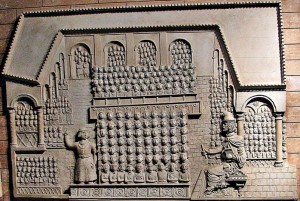Yitzhak Herzog (b. 1960) was born in Tel Aviv to a father from Ireland and mother from Egypt. His grandfather was once the Chief Rabbi of Ireland, and the Ashkenazi Chief Rabbi of Israel between 1936 and 1959. His uncle was the great Israeli politician Abba Eban. Meanwhile, Herzog’s father was an IDF general who also served as Israel’s sixth president between 1983 and 1993, as well as Israel’s Representative to the U.N. During his term in the latter position, the family lived in New York, where Isaac went to the Modern Orthodox Yeshivat Ramaz school. Herzog also studied at Cornell, New York University, and Tel Aviv University. During his army service, he was an intelligence officer with Unit 8200, the IDF’s largest unit, often compared to the American NSA. Herzog continues to serve in the military as a reservist. After completing his education, he worked in his father’s law firm. His first foray into politics was as a secretary in Prime Minister Ehud Barak’s cabinet between 1999 and 2001. He then chaired Israel’s Anti-Drug Authority until 2003, when he won a seat in the Knesset and was appointed Minister of Housing and Building. Since then, he has held a number of other ministerial posts, including Minister of Tourism, Social Affairs, Diaspora, and Welfare & Social Services. In 2013, he was elected leader of the Labor Party and thus became Leader of the Opposition. One of his first moves was meeting with Palestinian President Mahmoud Abbas and announcing his support for a two-state solution. For yesterday’s elections, Herzog joined his party with Tzipi Livni’s ‘Hatnua’ to form the ‘Zionist Union’. Though hailed by many as being the clear favourite in the elections and unseating Netanyahu, the Zionist Union ended up winning only 24 seats to Likud’s impressive 30. Herzog has stated that he will not be part of the coalition government, and will continue as Leader of the Opposition.
UPDATE: After serving as the head of the Jewish Agency, Herzog became President of Israel in July 2021.
Words of the Week
I don’t speak because I have the power to speak; I speak because I don’t have the power to remain silent.
– Rabbi Abraham Isaac Kook



